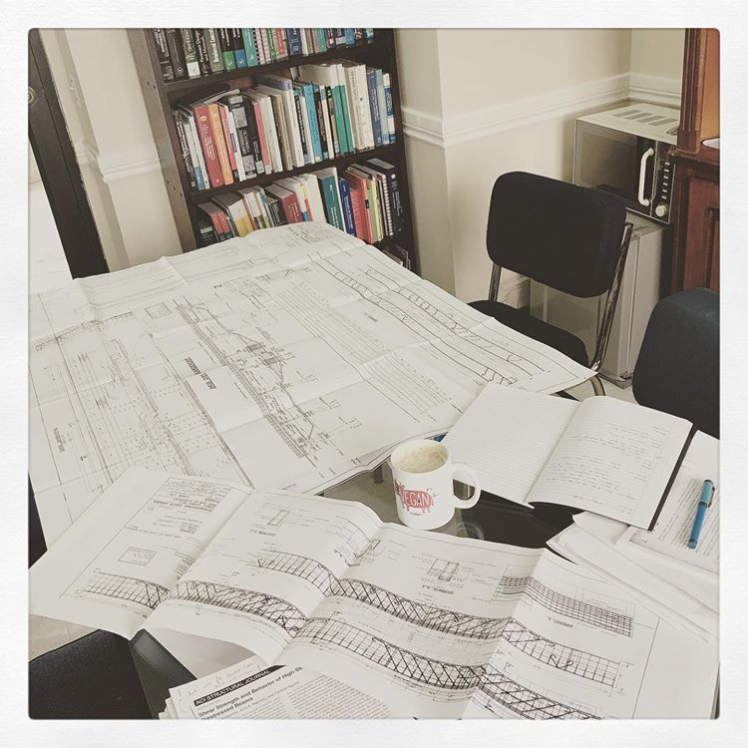Want to Get your Dissertation Accepted?
Discover how we've helped doctoral students complete their dissertations and advance their academic careers!

Join 200+ Graduated Students

Get Your Dissertation Accepted On Your Next Submission
Get customized coaching for:.
- Crafting your proposal,
- Collecting and analyzing your data, or
- Preparing your defense.
Trapped in dissertation revisions?
Overcoming the dissertation blues, published by steve tippins on april 19, 2019 april 19, 2019.
Last Updated on: 30th August 2022, 04:39 am
At some point during the dissertation marathon, people run into a period of time where writing a dissertation seems futile. Because the process of writing a dissertation is a lonely journey, many people think that they are the only person who has ever felt this way. You are not alone! Almost everyone feels this at some time. The question is not if you will get the Dissertation Blues, the real question is how to move forward.
Why Do We Get The Dissertation Blues?
Many have equated completing a dissertation to running a marathon . It is a long way and there are usually hills and valleys. The same can be said about a dissertation. What in particular can bring on the Blues?
Writing a dissertation is a lonely journey
It is rare that you will be at the same place as anyone else you know on this journey. Many times you will know no one in the same situation. We like to share our experiences with others but if they don’t understand what we are doing it doesn’t help much.
There is not a strong tradition of effective communication
When you get comments from your committee like “add more here,” it may not be helpful. More direction is what most doctoral students yearn for. I like to explain the doctoral process as a committee sending you out into the woods and explore and then asking you to report on what you have found.
This is usually followed by the committee saying it is not enough, go look around some more. Eventually, you stumble upon what they are looking for. Stumbling around without direction can be depressing.
It can feel like your fate is out of your control
You submit your document for committee review and get many comments. You address all of the comments and think that you are on your way. Yet, the document comes back with new comments on the areas that they read and did not comment on the first time. It can seem impossible to please many committee members.
Things can change quickly
Just when you figure out what you’re doing and what your committee wants, your chair leaves the university, the rules change, or someone publishes an article very similar to your dissertation research.
What Can You do about the Dissertation Blues?

So, you are down in the dumps about the whole dissertation thing. There are things that you can do to find your way back to equilibrium. Some of them include:
Pick your battles
Your committee is made up of good people who have been there before and are there to help you. They may advise you to do something differently than you had hoped for. You can fight to do things the way that you want but at what cost? Remember, the only good dissertation is a done dissertation.
Move your body
Working towards a PhD can be a sedentary path. Whenever you get a chance, practice the Greek tradition of healthy mind healthy body . Take a walk, do yoga, ride a bike. Do anything that gets your blood flowing. You may just find that it improves your attitude.
In our busy society, we tend not to eat well. If you need proof of this just look around. Take your mother’s advice and eat your veggies. A balanced diet can make us healthier and happier.
Visualize your life after you have defended your dissertation
Professional athletes try to visualize making a putt or sinking a free-throw beforehand to help realize success. Take some time to visualize what your life will be like when you complete this journey.
Write yourself a letter about why you are doing this
Take some time to write yourself a letter giving the reasons why you started down this path. Maybe it has always been your dream, it made your parents proud, or you wanted to change the world. Reminding yourself of the reasons can be helpful. Keep a copy of this letter and refer to it often.
Hack Your Dissertation
5-Day Mini Course: How to Finish Faster With Less Stress
Interested in more helpful tips about improving your dissertation experience? Join our 5-day mini course by email!
Find little pieces to do
Dissertations are big, long documents. You can’t write a dissertation in one day. You can write a little bit each day. Get back on track by reviewing an article, adding a reference to Chapter 2, or coding a little more data. These little steps get you closer to your goal.
Remember, this too shall pass
Life changes over time. What seems permanent falls away. The Blues came but they also go. Remember, you are not the first person to be on this path and there are others that you can reach out to. There are a number of groups on Facebook (try ABD (All But Dissertation) Support Group) where you can find others on the same journey.
If you found this article helpful, feel free to check out my thoughts on Preparing for Your Dissertation Defense and the most important Dissertation Writing Tips .
If you’re in need of any assistance, I also offer dissertation coaching services .
Steve Tippins
Steve Tippins, PhD, has thrived in academia for over thirty years. He continues to love teaching in addition to coaching recent PhD graduates as well as students writing their dissertations. Learn more about his dissertation coaching and career coaching services. Book a Free Consultation with Steve Tippins
Related Posts

Dissertation
What makes a good research question.
Creating a good research question is vital to successfully completing your dissertation. Here are some tips that will help you formulate a good research question. What Makes a Good Research Question? These are the three Read more…

Dissertation Structure
When it comes to writing a dissertation, one of the most fraught questions asked by graduate students is about dissertation structure. A dissertation is the lengthiest writing project that many graduate students ever undertake, and Read more…

Choosing a Dissertation Chair
Choosing your dissertation chair is one of the most important decisions that you’ll make in graduate school. Your dissertation chair will in many ways shape your experience as you undergo the most rigorous intellectual challenge Read more…
Make This Your Last Round of Dissertation Revision.
Learn How to Get Your Dissertation Accepted .
Discover the 5-Step Process in this Free Webinar .
Almost there!
Please verify your email address by clicking the link in the email message we just sent to your address.
If you don't see the message within the next five minutes, be sure to check your spam folder :).

Coping with Post-Dissertation Blues
You either are about to hand in your dissertation or will have already done so. This project will have occupied your mind for over a year. You were living, breathing and eating a 10,000 word research project. Naturally, once it is over, you might find you struggle to know what to do with yourself. You might be struggling with motivation to get ready for your exams.
Defining Post-Dissertation Blues
The day of handing in the biggest project of your degree, or the day after that, you will feel very different. Relief is there, but also emptiness and ennui. You may experience exhaustion, lack of sleep and a lack of energy. Some have compared it to “empty nest syndrome” (the low point of when a parent’s last child leaves home and they feel lacking in direction); the symptoms certainly bear that out. But how to cope with it?
Take a Break from Everything
If you’re an undergraduate, you have exams on the horizon. The natural instinct is to throw yourself straight into revision. In some ways, that would be a bad move. Postgraduates (especially PhD students) will feel a stronger sense of emptiness because their project would have occupied more of their mind for much longer.
Whether you’re an undergraduate or postgraduate, it’s important to take a break. Take a short break – maybe go home for a weekend – anything to take your mind off the dissertation. Go to the beach in the nice weather or for a meal with friends. What you don’t want to do is get straight back to the grind. Recognise you have work to do, but work in a “breather”.
Put It Out of Your Mind
There are two elements to the post-dissertation stress. One is the feeling of emptiness and loss. The second is the anxiety over how you performed. While keeping yourself busy (and taking a break) is the key to the first, the second issue is a different matter entirely. You will achieve nothing by worrying about your dissertation mark. You’re always going to think you could have done better, worked harder and done more. That’s perfectly natural but it’s too late to change. All you can do is focus on what you have left to do to achieve your degree.
Take Up a Hobby
If you’re an undergraduate, you’ll need a distraction from the upcoming exams. If you’re a postgraduate with no exams pending, your degree is now probably over. The sudden end to that hard work will feel like a cliff edge. The job search is about to begin and it could take months. Either way, you’ll need a distraction to take your mind of the constant preparation. A change is as good as a rest as the saying goes and getting your mind off the thing most occupying it can help you focus more clearly on moving forward.

Navigating the post-dissertation blues
- August 10, 2023
- evalantsoght_uw8lmy
The PhD is the cherry on top of your education, and your dissertation is the pinnacle of your PhD. Getting to finalize your dissertation and defending it requires years of hard work, dedication, and perseverance.
At the end of your PhD, you may expect to feel an overwhelming sense of relief and accomplishment. However, the reality for many PhD candidates is that the post-dissertation period can bring about unexpected emotions and a rollercoaster of feelings. I indeed have felt the post-dissertation blues, and I have since learned that I am not the only one.
In this blog post, I’ll explore the post-dissertation blues in more detail and I will hopefully manage to reassure you that what you’re experiencing is completely normal.
Scott Dinsmore, an expert in personal development, talks about the “emotional hangover.” It’s a peculiar mix of emotions that can follow the completion of a significant milestone, leaving individuals feeling drained, confused, and even depressed. The emotional hangover can stem from various factors, including the culmination of intense work, the release of built-up stress, and the sudden void created by the absence of your dissertation as the central focus of your life.
How can you recognize if you are experiencing the post-dissertation blues? Here are some of the “symptoms” you may be experiencing:
- Sense of emptiness : You may feel a void in your life now you finished your dissertation, as the project that occupied your thoughts and time for so long has come to an end.
- Loss of identity : After identifying as a PhD candidate for years, it’s common to experience a temporary loss of identity or a feeling of uncertainty about who you are now that you’re no longer actively engaged in research.
- Lack of motivation : The post-dissertation blues can sap your motivation, making it difficult to find enthusiasm for new projects or embark on the next steps in your academic or professional journey. I remember that I found it super hard to get started on writing on of the papers I wanted to publish from my thesis.
- Emotional exhaustion : The intensity of the dissertation process can leave you emotionally drained, and this exhaustion may persist even after completion. I sure had to catch up on a fair amount of sleep to beat this physical and emotional exhaustion.
- Self-doubt: Questions about the quality of your work, uncertainties about your future, and the fear of what lies ahead can trigger self-doubt and undermine your confidence.
- Social isolation : During the dissertation phase, you may have sacrificed social activities and connections, leading to a feeling of isolation. The post-dissertation blues can exacerbate this sense of loneliness, especially together with the sense of emptiness I mentioned before.
- Uncertainty about the future : The transition from being a PhD candidate to the next phase of your career can be daunting, and the post-dissertation period can be marked by uncertainty about your next career move. Maybe you won’t even know in which country you will be living..
Experiencing the post-dissertation blues is entirely normal. It’s close to a tie, but when I ran a poll on this topic, 50.8% of the respondents mentioned that they had felt the post-PhD blues themselves. These feelings are normal as you have just reached a major milestone in your life. It is OK to take some time for yourself and digest what you just achieved. You don’t need to put your game face on immediately and think about your next move – take the time to recover from the hard work you have done.
Did you experience any or all of the “symptoms” of the post-PhD blues when you finished?

Good habits to develop during the PhD
If you want to invest some time during your PhD…

Q&A: Focus
Here's a Q&A question from a while ago: Dear Ms…

Q & A: Building research experience
Here's a question that I received recently: I love this…
Leave a Reply Cancel reply
Your email address will not be published. Required fields are marked *
Save my name, email, and website in this browser for the next time I comment.
- previous post: Some tips for data collection and analysis
- next post: Coping with the post-PhD blues
- Research and Publications
- Guest Posts
Free Templates for your Research
Sign up here to get access to worksheets for your research that help you have more efficient meetings, reflect on your work, and plan your month. Suitable for anyone from Master’s thesis students to full professors!
The Post PhD Blues
This post is written by Brian Flemming , a mathematician working as a Systems Engineer in Edinburgh. He has recently completed an Engineering Doctorate (EngD) as a mature student at Heriot Watt University, which he found an intensive and enjoyable experience, and which he credits with greatly increasing the effectiveness and authority of his work. He is now appreciating the freedom to continue studying and spend time away on the hills, without the associated “PhD-guilt” of neglecting the books …
When Brian sent me this post I could instantly relate. In fact, this blog is the outcome of my own PhD blues where I needed something meaningful, creative and interesting back in my life. I know many people who have finished and express similar sentiments. Here are Brian’s thoughts.

I’m in a different situation than most, in that the job I’m doing now is the same as before I started my thesis. In December 2008, I started working on an Engineering Doctorate (EngD) alongside my “day-job”. 1,731 days later I submitted my thesis for examination, and was immensely proud to graduate as Doctor of Engineering last June.
I had always harboured an ambition to do a PhD, but it seemed unlikely that a suitable opportunity would ever arise. Entrance to post-graduate education is increasingly competitive and expensive, and is practically inaccessible to those without some form of 3rd-party backing. One would have to be highly motivated and determined (or wealthy enough) to make the attempt otherwise. To someone like me, having already established a career, the chances of becoming a mature student seemed a pipedream. Naturally, I jumped at the chance when our universities liaison manager asked if I wanted to do an EngD. An EngD is a PhD-equivalent qualification combining technical research and study with an MBA component. Without any further prompting I came up with a project that interested me, and which was subsequently accepted by management and the university. I was in.
The four-and-a-half years or so I spent grafting away at my studies were an extraordinarily intense experience; tremendously hard work, of course, stimulating, frustrating, depressing and exhilarating in equal measure, but ultimately personally very rewarding. Passing the viva so convincingly was truly a high point. I felt on top of the world. A PhD represents a pinnacle of learning, a measure of achievement to which considerable amounts of time and effort, as well as emotional commitment, have been devoted. Who hasn’t suffered pangs of uncertainty over whether a line of research will be successful, or merely end up as a waste of time? More worryingly, will your efforts be good enough to convince the examiners that you are worthy of a doctorate? To put it bluntly, a PhD is b****y hard work and exacts a great toll on one’s character to see it through to the end. A doctorate provides status in a society that values success. No wonder the sense of triumph at the end can be so potent, and the glow of personal pride so strong.
I have to admit being disappointed in the glow of my viva success not to have received greater recognition from my employers. But, no matter how elated I was feeling personally, reality had to kick in at some point. There are plenty of PhD-level engineers working in the company, so one more wasn’t going to make much of a difference to its prospects. There’s also plenty of R&D going on elsewhere in other departments. My research interests had simply to compete for attention amongst all other claims for development funding. The first of my “post-PhD blues” is that not everyone will share your excitement at getting a PhD, or will necessarily see the same value in your research as you do. Those close to you will of course be pleased and share in your delight, but the wider world isn’t necessarily going to be bowled over by your accomplishment. In short, your hard-won sense of achievement is likely to be deflated sooner or later.
Post-PhD Blue #2 concerns the process of getting back to ordinary life after completing the PhD. Suddenly, there’s the “what-on-earth-do-I-do-now-in-the-evenings-and-at-weekends” syndrome to cope with. For three or more years you were effectively your own boss managing your thesis from inception to completion, while having to satisfy the “must-have-it-now” demands of supervisors, university departments and sponsors alike. Whatever else you’ve had to cope with, you’ve spent long hours chasing references, and agonised over the wording of every paragraph. You’ve burned copious amounts of midnight oil, and had critical ideas at the most unlikely hours. After living the “PhD-lifestyle” for so long you’ve forgotten what it is like to live an ordinary 9-to-5 existence. Instead of those heady days obsessed with papers, presentations and conferences there’s now the tedium of the weekly timesheet and management priorities to cope with. You might have hated it at the time, but you’ll gradually realise that that period in your life when you stretched your brain on the rack was a veritable paradise compared with the daily humdrum of the profit motive.
My final “post-PhD blue” is that a PhD isn’t an automatic ticket to a better life. You might expect that the doors to promotion and a higher salary would open automatically, or that there would be a sure-fire guarantee of a place on the interview shortlist. Unfortunately, life isn’t quite that easy. For one thing, you’ll likely as not be over-qualified for a large number of jobs on offer. Moreover, experience and industry-specific knowledge will often rank as high for the prospective employer as do theoretical skills and academic attainment: lack of the necessary experience can militate against the short list, no matter good you are academically. As ever, it is also still as much “who-you-know” as “what-you-know” that gets you in line for the job you want. Networking skills are still important for the post-doc, even for preferment within a company.
You might not experience any of the above and adjust to post-PhD life without any difficulty. Others might not be so fortunate. We should, of course, aim to get the best out of our hard-worn qualification whatever our circumstances. However, my experience is that a PhD/EngD is ultimately about personal fulfilment and satisfaction. Anything else is a bonus.
What do you think? Have you suffered the PhD blues? Or do you have plans on how to avoid it? Love to hear your thoughts in the comments.
Related posts
The everywhere-nowhere place
PhD detachment
Share this:
The Thesis Whisperer is written by Professor Inger Mewburn, director of researcher development at The Australian National University . New posts on the first Wednesday of the month. Subscribe by email below. Visit the About page to find out more about me, my podcasts and books. I'm on most social media platforms as @thesiswhisperer. The best places to talk to me are LinkedIn , Mastodon and Threads.
- Post (606)
- Page (16)
- Product (6)
- Getting things done (258)
- On Writing (138)
- Miscellany (137)
- Your Career (113)
- You and your supervisor (66)
- Writing (48)
- productivity (23)
- consulting (13)
- TWC (13)
- supervision (12)
- 2024 (5)
- 2023 (12)
- 2022 (11)
- 2021 (15)
- 2020 (22)
Whisper to me....
Enter your email address to get posts by email.
Email Address
Sign me up!
- On the reg: a podcast with @jasondowns
- Thesis Whisperer on Facebook
- Thesis Whisperer on Instagram
- Thesis Whisperer on Soundcloud
- Thesis Whisperer on Youtube
- Thesiswhisperer on Mastodon
- Thesiswhisperer page on LinkedIn
- Thesiswhisperer Podcast
- 12,111,513 hits

Discover more from The Thesis Whisperer
Subscribe now to keep reading and get access to the full archive.
Type your email…
Continue reading
UK Edition Change
- UK Politics
- News Videos
- Paris 2024 Olympics
- Rugby Union
- Sport Videos
- John Rentoul
- Mary Dejevsky
- Andrew Grice
- Sean O’Grady
- Photography
- Theatre & Dance
- Culture Videos
- Fitness & Wellbeing
- Food & Drink
- Health & Families
- Royal Family
- Electric Vehicles
- Car Insurance Deals
- Lifestyle Videos
- UK Hotel Reviews
- News & Advice
- Simon Calder
- Australia & New Zealand
- South America
- C. America & Caribbean
- Middle East
- Politics Explained
- News Analysis
- Today’s Edition
- Home & Garden
- Broadband deals
- Fashion & Beauty
- Travel & Outdoors
- Sports & Fitness
- Sustainable Living
- Climate Videos
- Solar Panels
- Behind The Headlines
- On The Ground
- Decomplicated
- You Ask The Questions
- Binge Watch
- Travel Smart
- Watch on your TV
- Crosswords & Puzzles
- Most Commented
- Newsletters
- Ask Me Anything
- Virtual Events
- Betting Sites
- Online Casinos
- Wine Offers
Thank you for registering
Please refresh the page or navigate to another page on the site to be automatically logged in Please refresh your browser to be logged in
Beating the dissertation blues: How to eradicate end-of-year student stress
Article bookmarked.
Find your bookmarks in your Independent Premium section, under my profile

For free real time breaking news alerts sent straight to your inbox sign up to our breaking news emails
Sign up to our free breaking news emails, thanks for signing up to the breaking news email.
For most students, the end of the Spring term means final essay deadlines and intense revision sessions for the upcoming exam period. Factor in other stressful situations such as quickly-depleting loan money, trying to find accommodation for the following year and frantic job searching for final-year students and you'll find yourself falling head-first into disaster.
Fortunately, it doesn't have to feel like the end of the world. These simple steps won't make your essays magically write themselves or find your dream job but they will help you to focus, feel better both mentally and physically, and help you find your feet once more.
Draw up a timetable
Sounds simple enough. Putting together a timetable which incorporates your class schedule, when you plan to study and even when to eat can significantly help give your days a bit of order and set yourself daily and weekly goals to aim for. You're more likely to get stuff done if you know what it is and when it needs to be done by.
Get plenty of sleep
Again, this one goes without saying but it's easier said than done. The recommended amount of sleep for an adult is seven to nine hours; any less and it will probably be difficult to pay attention throughout the following day and you'll find yourself getting worked up over little things. The National Sleep a Foundation recommends establishing a regular wake-up time (even on weekends) and creating a sleep-conducive bedroom that is dark, quiet and comfortable.
Have some 'me time'
If you don't put aside any time for yourself to relax or do something that you enjoy, you'll start resenting what you are doing and this could affect the quality of your work and your overall mood. Take time to have a relaxing bath or phone a friend, even for half an hour. A small moment of pleasure can really turn a hard or stressful day around.
Drink plenty of water
We've been told this since we were youngsters but even now, it's hard for many of us to have the eight to 10 recommended 200ml glasses of water a day. Buy a sports flask, fill it up with tap water at the start of the day and carry it around with you. You'll soon find yourself taking sips during lectures or on the bus and before you know it, you're refilling it and drinking your recommended daily intake. Unlike soft drinks, water contains zero sugar and is the best option for boosting energy. If you don't like the taste, add some sugar-free squash or a slice of lemon or lime.
Eat balanced, healthy meals at regular intervals
As well as reducing the risk of certain serious diseases such as heart disease and diabetes, eating healthy balanced meals can do wonders for your general wellbeing. Certain foods are great for alertness such as those containing vitamin B while others are known to trigger stress such as tea, coffee, sugar, soft drinks and even some meats. Eating smaller meals at regular intervals will also help to increase your metabolic rate and therefore give you plenty of energy to see you through the day.
Speak to your university wellbeing or counselling service
Sometimes, it all gets a bit too much and we realise that it's time to talk to someone. Luckily for us students, most universities offer a wellbeing or counselling service that usually provides around five sessions free of charge. If you just want to get a few things off your chest or need some advice on how to cope with so many things happening at one time, then give your campus medical centre a visit. Please be aware that there may be a waiting list at this time of year.
Join our commenting forum
Join thought-provoking conversations, follow other Independent readers and see their replies
Subscribe to Independent Premium to bookmark this article
Want to bookmark your favourite articles and stories to read or reference later? Start your Independent Premium subscription today.
New to The Independent?
Or if you would prefer:
Want an ad-free experience?
Hi {{indy.fullName}}
- My Independent Premium
- Account details
- Help centre
Reimagining the blues: A new narrative for 21st century blues music
https://repository.derby.ac.uk/item/953zy/reimagining-the-blues-a-new-narrative-for-21st-century-blues-music
Download files

- < Previous
Home > ETDS > etd > 1539623381

Dissertations, Theses, and Masters Projects
Two steps from the blues: creating discourse and constructing canons in blues criticism.
John M. Dougan , College of William & Mary - Arts & Sciences
Date Awarded
Document type.
Dissertation
Degree Name
Doctor of Philosophy (Ph.D.)
American Studies
Arthur Knight
This dissertation examines the development of blues criticism in its myriad forms from the 1920s to 1990s, its role in the emergence of a blues discourse and history, and the codification of a blues canon. I analyze blues discourse principally as the creation of critics, historians, and musicologists, but also as the result of series of complex, imbricated relationships among writers, musicians, fans, record collectors, and independent entrepreneurs.;Beginning in the 1920s, I outline a pre-history of blues discourse by examining the metamorphosis of the blues as a cultural text shaped by the folklore scholarship, criticism and reportage in the popular press, and the commercial ascendancy of the blues on record. of special interest is the blues writing in the African American press and how these writers debated the cultural politics of music and interpretations of racial uplift ideology.;In the post-World War II era, I focus on the works of Samuel Charters and Paul Oliver, specifically the former's The Country Blues and the latter's Blues Fell This Morning. I examine how their writing influenced the blues revivalists of the 1960s, and the impact of their work on later blues scholars, journalists, and record collectors. It is the last group, record collectors, that I examine in detail and their work as the musical archaeologists, culture brokers, and keepers (and creators) of multiple blues canons. Lastly, I analyze the work of women blues writers, their rhetorical approach to the genre, and the impact they have had on decentering the male-authored blues canon and recreating contemporary blues discourse.
https://dx.doi.org/doi:10.21220/s2-nqf0-d245
© The Author
Recommended Citation
Share Feedback
Since October 17, 2018
Included in
African American Studies Commons , American Literature Commons , Mass Communication Commons , Music Commons
- Collections
- Disciplines
Advanced Search
- Notify me via email or RSS
Author Corner
- Info on submitting W&M theses and dissertations
About Scholarworks
- Honors Theses
- W&M Libraries
- VIMS Hargis Library
- W&M Law School Repository
- Research Guides
Home | About | FAQ | My Account | Accessibility Statement
Privacy Copyright

- < Previous
Home > Graduate College > Dissertations > 3424
Dissertations
At the crossroads of race, class and culture: identifying the unintended consequences of technology on the agency of blues musicians.
Michael D. Berghoef , Western Michigan University Follow
Date of Award
Degree name.
Doctor of Philosophy
First Advisor
Dr. David J. Hartmann
Second Advisor
Dr. Douglas Davidson
Third Advisor
Dr. Susan Morris
Blues musicians, Blues history and criticism, music and technology, Blues music, digital sociology, music and technology-social aspects
This dissertation explores the impact the rapid evolution and implementation of technology has had on blues musicians and the music they created and shared with their audiences over the past sixty years. The past 150 years have seen the conversion of nearly all musical participation as live, unmediated and with close proximity of performer to audience, to an experience that is increasingly recorded, digitally mediated and often listened to in isolation from others.
While a great deal of live music is still performed around the world on a daily basis, the impact of the largescale cultural shift move to what might be seen as its polar opposite, the phenomenon of the ubiquitous solo “consumer” listening to recorded music through headphones, surprisingly remains largely unexamined. What potential social consequences occur with this shift from communal to private listening? What other interactive and more participatory possibilities might technology make available? This raises questions of the purpose of live performance, its social impact, and by extension the purpose of art. If live music continues to be increasingly replaced by recorded music, how many musicians are really needed? What will the future demand for live music generally? And will there be a resultant shift from performing artist to musical technicians?
While much of the history is known, though at risk of being forgotten with further distance in time, the role of technology has not been fully examined in blues music from the standpoint of the blues musician. This study attempts to give voice to the remaining living blues artists who lived through this time of great transition and hear from them directly about their experiences with the introduction of technology into the world of blues music and the effects on them, their artistry, and their social relationships.
Access Setting
Dissertation-Open Access
Recommended Citation
Berghoef, Michael D., "At The Crossroads of Race, Class and Culture: Identifying the Unintended Consequences of Technology on the Agency of Blues Musicians" (2019). Dissertations . 3424. https://scholarworks.wmich.edu/dissertations/3424
Since June 13, 2019
Included in
Race and Ethnicity Commons
ScholarWorks
Advanced Search
- Notify me via email or RSS
- Collections
- Disciplines
Author Corner
- Graduate College
Western Michigan University Libraries, Kalamazoo MI 49008-5353 USA | (269) 387-5611
Home | About | FAQ | My Account | Accessibility Statement
Privacy | Copyright
Along with Stanford news and stories, show me:
- Student information
- Faculty/Staff information
We want to provide announcements, events, leadership messages and resources that are relevant to you. Your selection is stored in a browser cookie which you can remove at any time using “Clear all personalization” below.
This fall, five scholars in the study of race and ethnicity will join the Stanford community for three years as part of the IDEAL Provostial Fellows program , which is designed to support the work of promising early-career researchers from a variety of fields.
The five scholars are the fourth cohort of fellows to be appointed since the program began in 2021.
“The program has attracted some of the most promising young scholars in the nation doing research about the impacts of race and ethnicity,” said Provost Jenny Martinez. “They are an important resource for our students and faculty, and enrich our community of scholars with new methodologies and new ways of looking at these issues. I’m pleased that we’re able to continue this program at Stanford.”
The 2024-27 fellows will work within Stanford schools and departments, where they will have a mentor selected from among Stanford’s Academic Council faculty. Each fellow will teach one course per year while expanding on their research.
“This year’s group of IDEAL Provostial Fellows were selected for their impressive research and for their commitment to tackling societal issues related to race and ethnicity,” said C. Matthew Snipp, vice provost for faculty development, diversity, and engagement, as well as interim vice provost for student life. “We’re delighted to welcome them to the Stanford community and we look forward to supporting them in their research and teaching careers.”
The IDEAL fellows also organize an annual symposium at Stanford that brings together scholars from across the country. This year’s symposium, which will be organized by the 2023-26 cohort, is scheduled for October 17-18, 2024.
The IDEAL Provostial Fellows program was established by former Provost Persis Drell to increase the amount of research and teaching related to race and ethnicity at Stanford, as well as nationally.
“One of the goals for this program is to develop researchers and teachers who will lead the next generation of scholarship in race and ethnicity,” said Snipp. “The program has been successful even in these early days with some of our IDEAL fellows going on to faculty positions at Stanford and other institutions.”
April Burrage, management science & engineering

April Burrage
April Burrage’s research focuses on understanding the institutional factors contributing to racial and gender disparities in entrepreneurship and innovation. Her research aims to examine how these disparities affect labor market outcomes in the knowledge economy, particularly in STEM fields. Through her work, she seeks to inform policies and practices that promote a more inclusive and dynamic entrepreneurial landscape.
Prior to beginning her PhD program, Burrage’s industry experience – including roles in risk management and tech sales – shaped her research interest in the motivations and decisions of entrepreneurs.
She is a PhD candidate in economics at the University of Massachusetts Amherst.
Abdulbasit Kassim, African and African American studies

Abdulbassit Kassim (Image credit: Todd Treangen)
Abdulbasit Kassim is an interdisciplinary scholar specializing in the histories and cultures of Muslim societies with a geographical focus on West Africa and the African diaspora.
Kassim’s research spans the early modern and modern periods, tracing ideas that circulated in Muslim societies in West Africa and the African diaspora. He aims to bridge the Afrocentric, Black Atlantic, and Black Mediterranean models of African and African diaspora studies by synthesizing the historical interconnections between the peoples and cultures of Africa and the experiences of African diasporic communities as they adapt to new lives in the other parts of the world.
Before coming to Stanford, Kassim completed his PhD at Rice University. He received an MA from Keele University, Newcastle-under-Lyme, Staffordshire, England, and a BSc from Ahmadu Bello University, Zaria, Nigeria.
Matthew Mendez, music

Matthew Mendez
Matthew Mendez is a music historian and media scholar whose research addresses the intersections between African American singing voices, recording industry histories, and critical legal studies. His current book project, Haunted House Blues: Bessie Smith, Vocal Possessions, and the Media of Redress, examines one of the first intellectual property reparations lawsuits in U.S. history.
Mendez also has interests in the cultural politics of intellectual property as it pertains to live debates surrounding the computational singing and speaking voice.
Mendez is a doctoral candidate in music history at Yale University, where he also completed a graduate certificate in the Film and Media Studies Program. He has master’s degrees from the University of Edinburgh and the Guildhall School of Music & Drama, and he received his BA from Harvard University.
Roxanne Rahnama, political science

Roxanne Rahnama
Roxanne Rahnama’s research examines the conditions under which elite communities mobilize around ideology and symbolic politics as tools to maintain hierarchy along race, class, and gender dimensions, who the primary agents of these tools are, and their social and political consequences. In her dissertation, she uses original quantitative historical data on the formation of local chapters of the United Daughters of the Confederacy in the early 20th-century Jim Crow South.
Rahnama is a PhD candidate in political science at New York University. She also holds a master’s in technology and policy from the Massachusetts Institute of Technology, and a BA and BS in economics and environmental economics and policy, respectively, from the University of California, Berkeley.
Laura Weiwu, economics

Laura Weiwu
Laura Weiwu is a labor economist interested in topics related to spatial inequality and urban policy. Her dissertation investigates the sources of racial segregation during the 1960s and the importance of institutional discrimination in residential locations. She examines the interaction between institutions and the Interstate highway system as a mechanism for why infrastructure policy has unequal distributional consequences across groups.
During her doctoral studies, she also served as an economist with the Census Bureau’s Center for Economic Studies to construct novel measures of intergenerational mobility by race.
Weiwu received her PhD in economics from the Massachusetts Institute of Technology and holds a BA in economics and a BS in applied mathematics from Stanford.
About the IDEAL Provostial Fellows Program
The Provostial Fellows Program is part of the IDEAL initiative, a set of university-wide efforts designed to create a culture of inclusion, access, equity, and belonging.
Each year, cohorts of five early-career scholars are selected for the program by a committee of Stanford faculty and appointed by the provost to a three-year term. Fellowships may be in any school of the university. To date, Stanford has recruited 20 scholars to the IDEAL Fellows Program, representing a wide variety of fields.
Read more about the IDEAL Provostial Scholars Program on the Office of the Vice Provost for Faculty Development, Diversity and Engagement website .
Apple Music 100 Best Albums
At their most direct, Donald Fagen and Walter Becker delivered a masterpiece, full of tragic romanticism.
Donald Fagen and Walter Becker’s approach to recording had evolved from a fixed group of people playing a set of songs from start to finish to a piecemeal process in which they tried out multiple players for the same part until they found a satisfactory combination—all before doing it all over again on the next song. As sophisticated as the process was, Steely Dan never sounded as direct as they do on Aja . There’s the R&B of “Josie,” the bounce of “Black Cow,” and the fact that “Peg” felt like actual dance music rather than a dissertation on it.
“Steely Dan is the band that every song that you love that you don’t know who it is, it’s them.”
Mayer Hawthorne
In the coastal fog of 1970s California pop, Fagen and Becker had always appeared like bookish New York hipsters raised on R&B and jazz. But Aja was the first time that identity had come through so clearly in the music. And while there are plenty of close seconds, no character captured Steely Dan’s tragic romanticism like the suburban guy on “Deacon Blues,” who fantasizes about becoming a saxophone player—only to get drunk and die in a car wreck. Yeah, he’s a misfit. But least he believed in something.
Deacon Blues
Home At Last
I Got The News
Hear full tracks and add albums to your library.




IMAGES
VIDEO
COMMENTS
If you are suffering from the blues, here's some practical advice that might help. I'd like to thank Ümit Kennedy for sending in this post. Umit is a PhD candidate with the Writing and Society Research Centre at Western Sydney University. You can connect with her via email at [email protected] or on social media using @umitkennedy ...
Because the process of writing a dissertation is a lonely journey, many people think that they are the only person who has ever felt this way. You are not alone! Almost everyone feels this at some time. The question is not if you will get the Dissertation Blues, the real question is how to move forward. Book a Free Consultation.
Defining Post-Dissertation Blues. The day of handing in the biggest project of your degree, or the day after that, you will feel very different. Relief is there, but also emptiness and ennui. You may experience exhaustion, lack of sleep and a lack of energy. Some have compared it to "empty nest syndrome" (the low point of when a parent's ...
Navigating the post-dissertation blues. The PhD is the cherry on top of your education, and your dissertation is the pinnacle of your PhD. Getting to finalize your dissertation and defending it requires years of hard work, dedication, and perseverance. At the end of your PhD, you may expect to feel an overwhelming sense of relief and ...
Post-PhD Blue #2 concerns the process of getting back to ordinary life after completing the PhD. Suddenly, there's the "what-on-earth-do-I-do-now-in-the-evenings-and-at-weekends" syndrome to cope with. For three or more years you were effectively your own boss managing your thesis from inception to completion, while having to satisfy the ...
June 25, 2015. The Royal Tenenbaums (2001) "Post-dissertation stress disorder" and "post-dissertation depression" are real things. A friend introduced those terms to me when I was trying ...
Rodwell, E. (2016), " Surviving the post-dissertation slump," The Chronicle of Higher Education, 62(17): D6. Follow The Orange Journal so you don't miss a post. Do you love to write about ...
For most students, the end of the Spring term means final essay deadlines and intense revision sessions for the upcoming exam period. Factor in other stressful situations such as quickly-depleting ...
Prize-Winning Thesis and Dissertation Examples. Published on September 9, 2022 by Tegan George.Revised on July 18, 2023. It can be difficult to know where to start when writing your thesis or dissertation.One way to come up with some ideas or maybe even combat writer's block is to check out previous work done by other students on a similar thesis or dissertation topic to yours.
Authors: Martin, Nigel James: Qualification name: PhD: Abstract: This project explores the extent to which blues music in the 21st century is linked to its cultural past through identification and examination of the key concepts and relationships that may contribute to a contemporary understanding of the blues and cultural artefacts, as circulated and consumed in popular music practices.
Sep 3, 2018 · 1 min read · Member-only
This dissertation examines the development of blues criticism in its myriad forms from the 1920s to 1990s, its role in the emergence of a blues discourse and history, and the codification of a blues canon. I analyze blues discourse principally as the creation of critics, historians, and musicologists, but also as the result of series of complex, imbricated relationships among writers ...
Provided to YouTube by Universal Music GroupDissertation On The Blues · Jimmy McGriffMcGriff Avenue℗ 2002 Milestone RecordsReleased on: 2002-01-01Composer L...
Dissertation Blues describes a dilemma faced by Remya, a post graduate student who ran into a major difficulty during her dissertation. She is in a dilemma what to do in the very limited time ...
This dissertation explores the impact the rapid evolution and implementation of technology has had on blues musicians and the music they created and shared with their audiences over the past sixty years. The past 150 years have seen the conversion of nearly all musical participation as live, unmediated and with close proximity of performer to audience, to an experience that is increasingly ...
Dissertation directed by Associate Professor Adam Bradley "Beyond the Blues" explains how the gendering of sound led into and emerged out of the problem of the color line in twentieth-century American musical culture. Studying figures such as James Weldon Johnson, Ralph Ellison, Philippa Schuyler, and John Coltrane, this dissertation ...
Die Dissertation von Stephanie Busch greift diese Fragestellung auf und verfolgt dabei zwei Ziele. Zum einen soll der bisher unzureichende Erkenntnisstand zu Pionier-Vorteilen in der ...
Theses.Paper 730. A SOUND FOR RECOGNITION BLUES MUSIC AND THE AFRICAN AMERICAN COMMUNITY by Rémy Corbet Masters Degree, Southern Illinois University, 2011 A Thesis Submitted in Partial Fulfillment of the Requirements for the Masters in History in the Graduate School Department of History Southern Illinois University Carbondale December 2011.
The long road to Ph.D. chronicled by my iMac. "Dissertation Blues" written and sung by dhruva'.
This year's symposium, which will be organized by the 2023-26 cohort, is scheduled for October 17-18, 2024. The IDEAL Provostial Fellows program was established by former Provost Persis Drell to ...
In the coastal fog of 1970s California pop, Fagen and Becker had always appeared like bookish New York hipsters raised on R&B and jazz. But Aja was the first time that identity had come through so clearly in the music. And while there are plenty of close seconds, no character captured Steely Dan's tragic romanticism like the suburban guy on "Deacon Blues," who fantasizes about becoming a ...
In 1938, it was granted town status. [citation needed]Administrative and municipal status. Within the framework of administrative divisions, it is incorporated as Elektrostal City Under Oblast Jurisdiction—an administrative unit with the status equal to that of the districts. As a municipal division, Elektrostal City Under Oblast Jurisdiction is incorporated as Elektrostal Urban Okrug.
Welcome to the 628DirtRooster website where you can find video links to Randy McCaffrey's (AKA DirtRooster) YouTube videos, community support and other resources for the Hobby Beekeepers and the official 628DirtRooster online store where you can find 628DirtRooster hats and shirts, local Mississippi honey and whole lot more!
Permission is granted to copy, distribute and/or modify this document under the terms of the GNU Free Documentation License, Version 1.2 or any later version published by the Free Software Foundation; with no Invariant Sections, no Front-Cover Texts, and no Back-Cover Texts.A copy of the license is included in the section entitled GNU Free Documentation License.
0 mm. 3 m/s. Open hourly forecast. Updated 08:28. How often is the weather forecast updated? Forecast as PDF Forecast as SVG. Weather forecast for Elektrostal for the next 10 days.